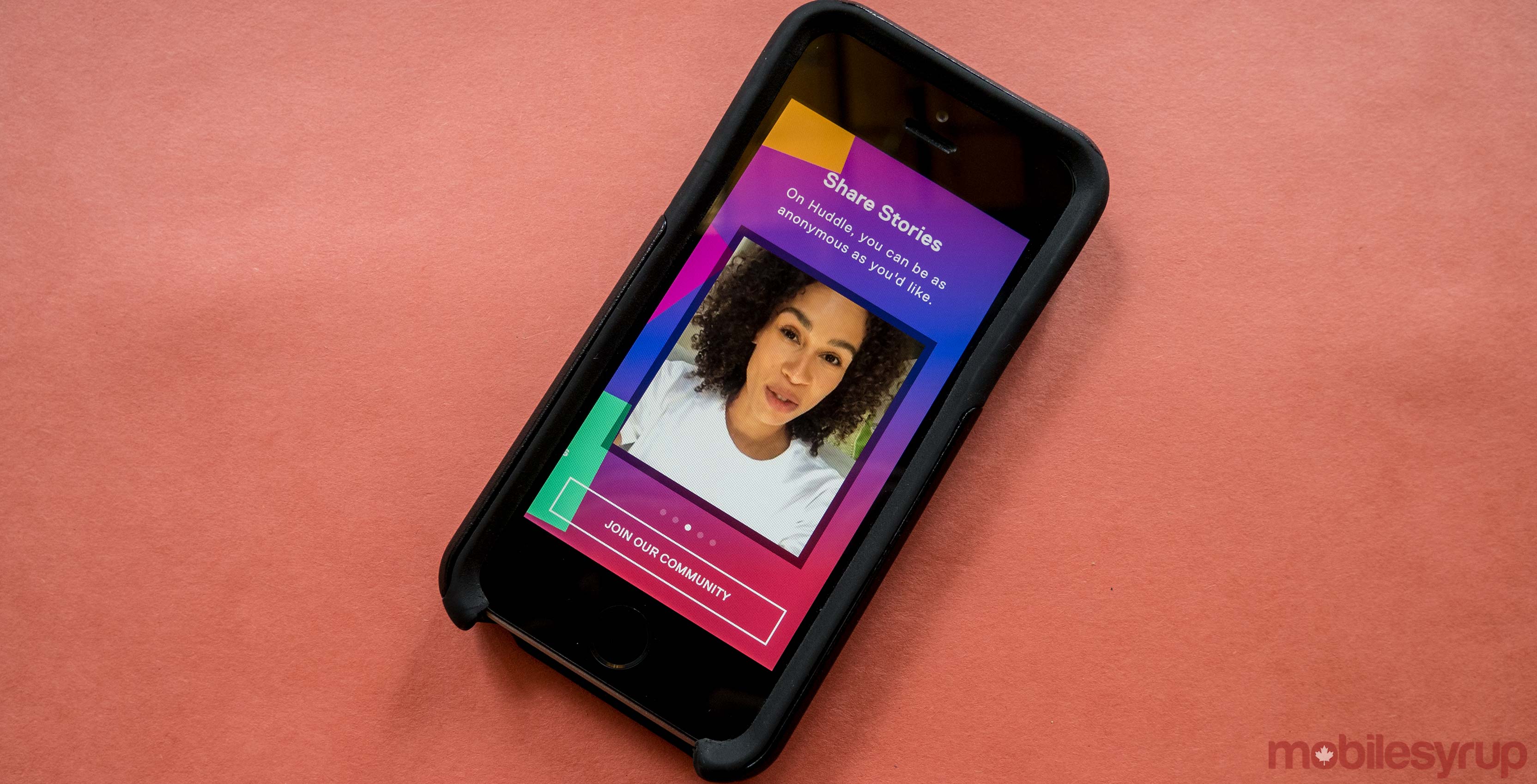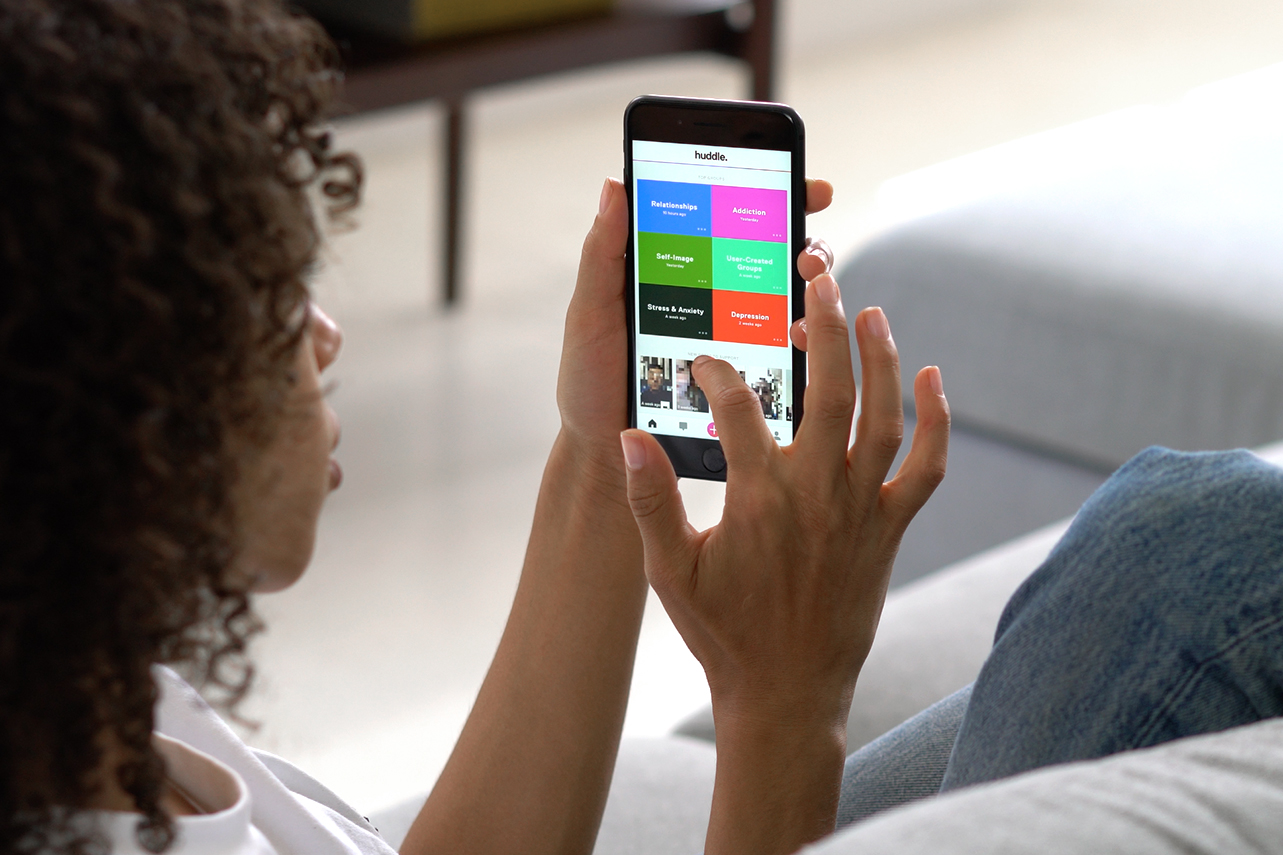
Imagine that you’re living with depression; who would you talk to about your concerns? A doctor? A family member? A close friend?
Most people wouldn’t think to turn to the internet, especially since most websites aren’t the best places to speak candidly about personal matters, and definitely not to speak candidly face-to-face.
Yet that’s exactly what Dan Blackman and Tyler Faux hope that smartphone users will be able to do with the Huddle app.
Huddle’s an application aimed at individuals currently experiencing difficulties with mental health or addiction, who are looking for a safe space to share their thoughts and feelings with a supportive group of listeners.
Huddle’s key feature is that users communicate through video chat — not text. They can join public groups to communicate openly and they can create private groups with other Huddle users.
Blackman and Faux want their users to be able to have genuine, supportive, face-to-face conversations with one another, without worrying about criticism or bullying.
“In-person, peer-to-peer support really works,” said Blackman, in an interview with MobileSyrup. “We want to create that brand where someone can go and open up.”
A curious thing happened on the way to the forum
Blackman and Faux first met while working at Tictail, a Swedish e-commerce website that’s quite different from the startup the two co-founded together.
However, Blackman says that he has a personal connection with the kinds of issues he hopes Huddle users will discuss.
“Growing up, my dad actually dealt with an addiction to alcohol,” said Blackman. “One of the big things I learned was that the idea of labeling himself or even talking openly to a doctor is one of the reasons why he never got the help he needed.”
As for Faux, he has experience with friends and family members who thrived by receiving support from their own friends and family — a network of their peers.
“We wanted to recreate that in a digital platform.”
When Huddle was in its early stages, Blackman says that he and Faux spent quite a bit of time researching the options available for people looking for help.
“We couldn’t really find anything,” said Blackman.
There were lots of text-based “white canvas” forums and there were lots of crisis hotlines that people could call to speak with professionals, but there weren’t really any face-to-face options that allowed people seeking help to speak with other people.
“We wanted to recreate that in a digital platform,” said Blackman.
Huddle up and help people
Blackman, a Tumblr alumnus, is the first to point out some of the problems with modern social networks.
He says that there’s a lot of bullying and a lot of people using their anonymity to hurt people looking for help.
He also says that in spaces like Tumblr, it’s easy for users to co-opt the narratives of other people and turn them into personal stories.
Worse, it’s easy for people to amass a network based solely on bullying those people who do choose to share their experiences.
Unlike other social networks, Blackman believes that people will come to Huddle to provide help and to seek it as well.

“We think of our users as two different types of people,” said Blackman. “Those who want to empower and support and tell their stories… [and those who] are a bit more vulnerable.”
So far, Blackman’s noticed that about 60 percent of users trend towards the support role, while roughly 40 percent come to Huddle to seek aid.
“One of our core values for Huddle is safety.”
It’s also because of those people looking for help that Huddle allows its users to obscure and protect their identities.
Most Huddle communications are carried out through video, but the app allows users looking for anonymity to pixelate and hide their faces.
“One of our core values for Huddle is safety,” said Blackman. “We’re not going to be able to thrive as a company without making those safe spaces.”
![]()
To that end, Huddle utilizes a number of user moderation and administrator moderation tools that Blackman says he’s surprised more social networks don’t employ.
“One is secure login — making people sign up through a real identity [like] Facebook or a mobile phone number,” said Blackman. “If someone is a bad player, we can kick them out — they’ll need to create a new phone number of Facebook account to come back in.”
“I’m sure there are people who would go to those lengths… but it’s a big barrier to get back in.”
Empowering others through the internet
A lot of companies make the claim that they’re products will make the world a better place, but few truly take those steps in everything they do.
For Dan Blackman and Tyler Faux, their company is founded on that simple desire to help other people.
“I think pretty much from the beginning, Tyler and I are both product-makers at heart and we both really believe in what we’re doing,” said Blackman.
“Ultimately for us, we’ve worked on a number of different companies before this and we’re just genuinely excited to create something that can help people.”
Huddle is available to download for free on iOS.
MobileSyrup may earn a commission from purchases made via our links, which helps fund the journalism we provide free on our website. These links do not influence our editorial content. Support us here.


